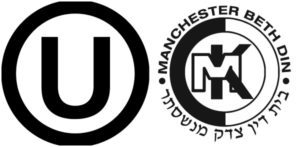When it comes to kosher, lots of people wonder: Why does that need certification? Some certifications seem nonsensical, like those for water, or soap. And what about single ingredient items, like 100% orange juice. How could it not be kosher? Those questions aside (though answers from readers would be most welcome), a recent press release from the Hindu society about a hidden ingredient in some Kellogg’s cereals made us realize that kosher certification, for those who seek to be kosher observant, is invaluable.
According to Rajan Zed, a Hindu cleric based in Nevada, Hindus that eat certain Kellogg’s cereals have for decades unknowingly been consuming a verboten food. It turns out, according to Zed, that Pop Tars, Rice Krispies Treats cereal and Frosted Mini-Wheats cereal all contain a gelatin derived from beef. Many Hindus do not consume beef, as the cow is a sacred deity in the Hindu faith.
Imagine the shock and upset that practicing Hindus would have felt when they found this out? It reminds of scandals within the charedi community where non-kosher meat was being sold (in some cases by fellow charedi Jews) to unsuspecting clientele.
While kosher-observant American Jews used to rely heavily on ingredient reading — as do, to this day, many Jews living overseas — today people tend to seek out a symbol, and there are hundreds to choose from. Perhaps there are too many, and perhaps some foods are certified that really don’t need it (again, water?), but with food production being so complex and driven by processes rather than single ingredients, it seems that if you truly care about keeping kosher, that symbol is all important.














One thought on “Kosher certification — why it’s necessary”